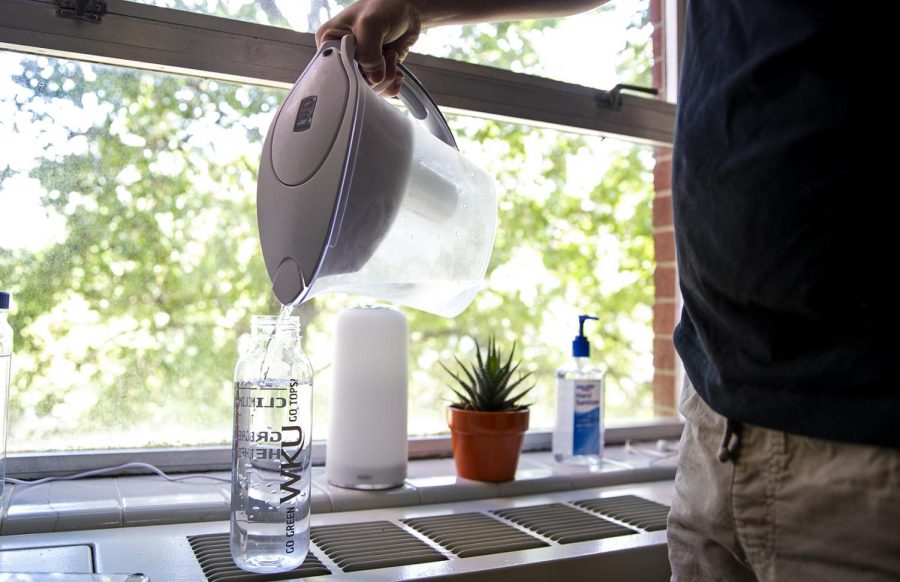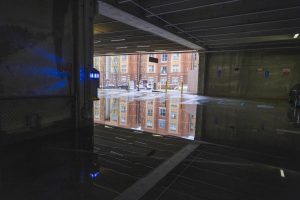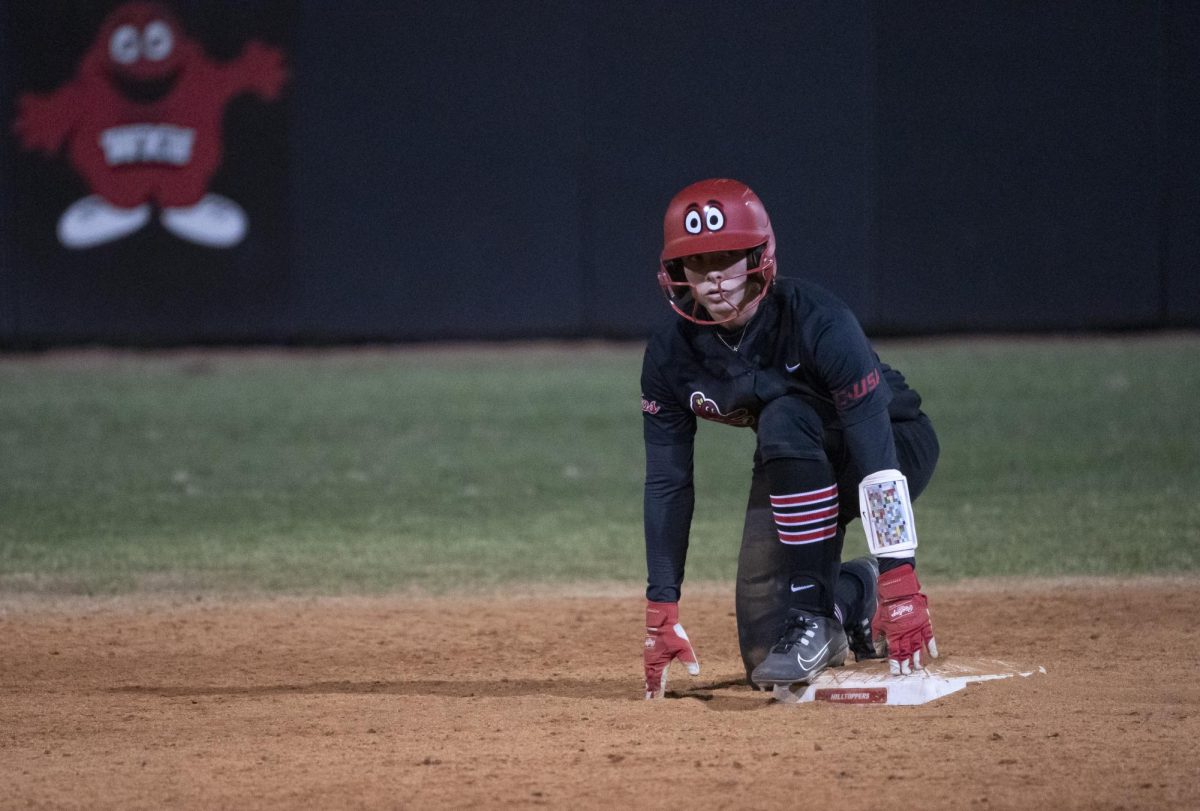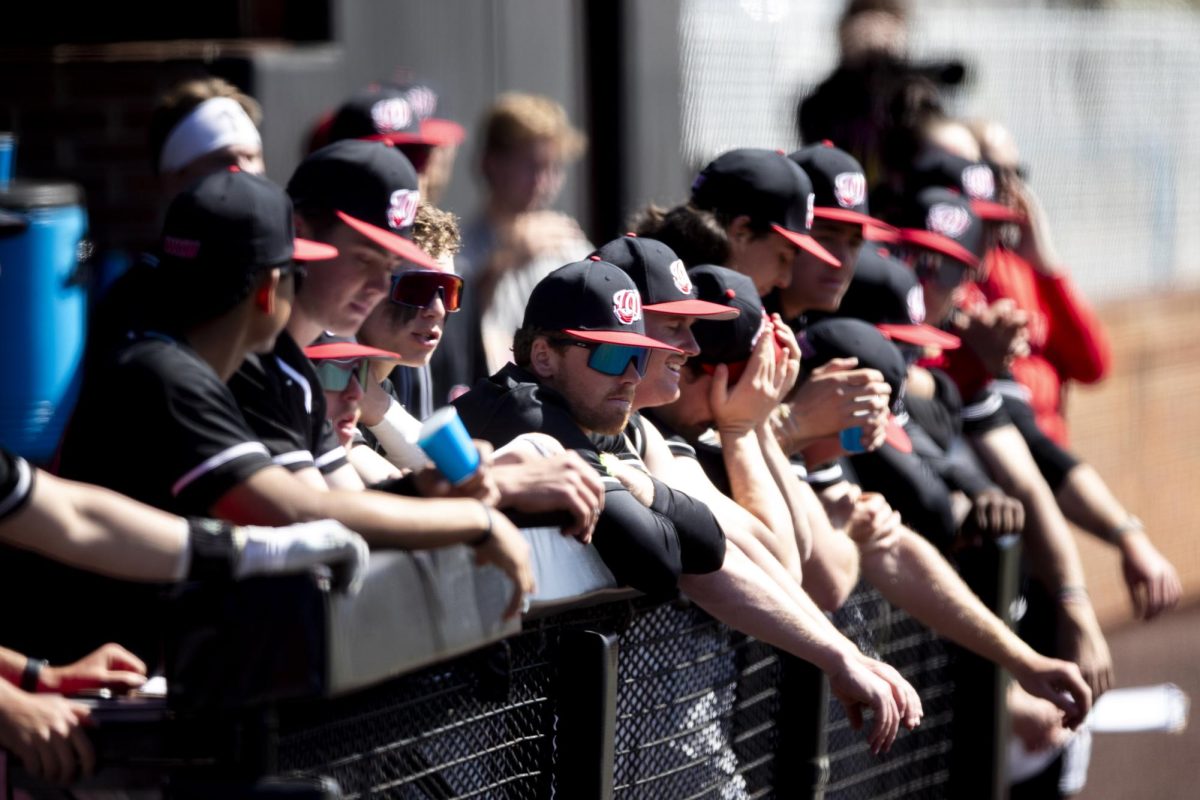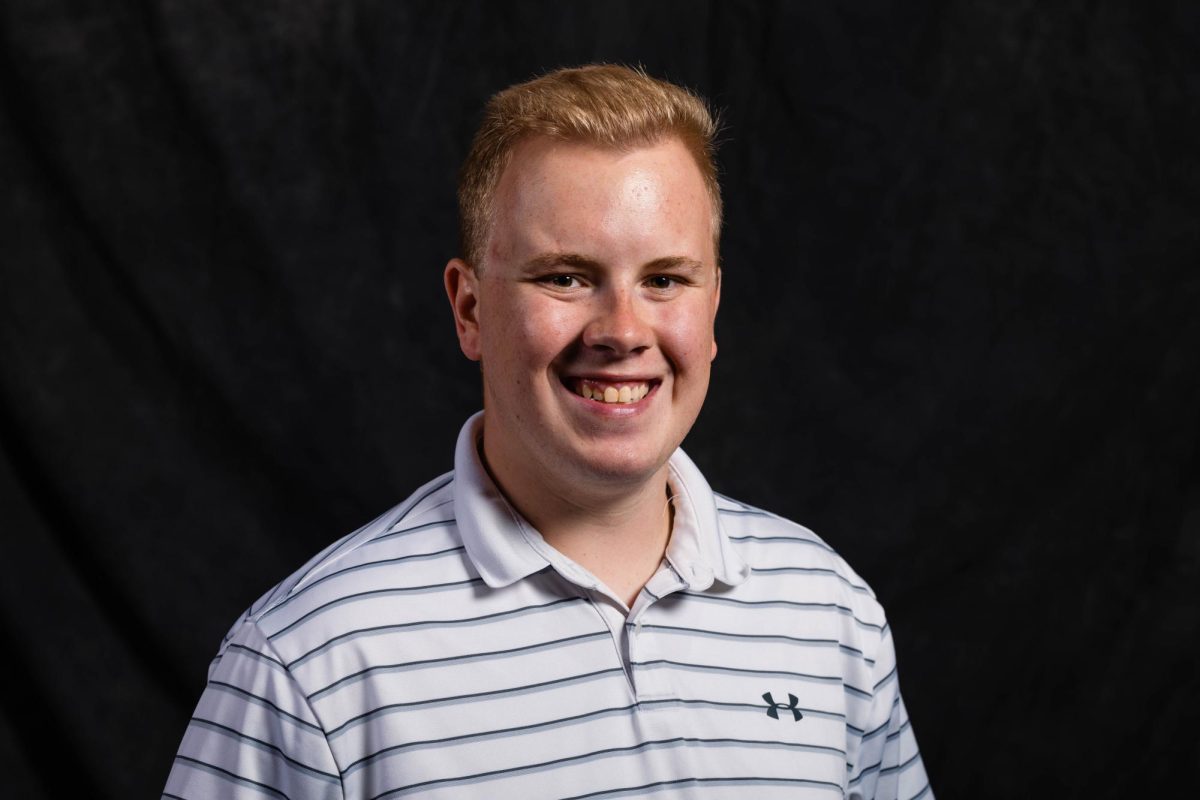A true Cupanion: WKU finding success in new recycling program focused on plastic waste
September 3, 2019
“Fill It Forward,” a new recycling program at WKU, made its debut
on campus during the first week of classes. Students were recorded to have refilled their bottles over 2,000 times.
It comes as a new and green reality for students on campus, stemming from a summer collaboration between WKU’s Department of Resource Conservation and Cupanion, distributor of the unbreakable Tritan material bottles.
“The program magnifies the impact of living responsibly by donating money to the different water causes and breaking down environment impact in the easiest way,” said Assistant Coordinator of Resource Conservation Courtney Martin.
Beth Gafford, coordinator of Resource Conservation, led the team in providing all freshmen who attended M.A.S.T.E.R. Plan with a Cupanion bottle to drink from in lieu of plastic bottles.
M.A.S.T.E.R. Plan mentors handed out the reusable bottles during the sign-in time frames. Each bottle came with a sticker and instructions to download the Fill It Forward app to scan and track the amount of water or beverage they consumed.
WKU is charged a yearly subscription for the facility’s capability to track the campus usage, but the scannable tags never expire.
For many students, this recycling tool is an opportunity to reduce the detrimental effects plastic has on the environment. For others, the incentives for participating in the program are just as rewarding.
A 2 cent donation comes from each cup of water consumed and is contributed towards an international reuse program or other related projects. Cupanion has funded over 100 clean water projects, which assist deprived families around the globe. Some current projects are in Africa and rural Canada.
The comprehensive app also allows its users to visually see how their reuse habits are lessening WKU’s ecological footprint.
Other incentives for reusing the water bottles include free promotional items, half-off deals for coffee and entry into a monthly drawing upon reaching 10 refills.
Aramark restaurants on campus are also part of the program and will refill students’ Cupanion bottles at the beverage fountain machines. The variety of drinks that can be stored in the bottles are endless.
Fill It Forward expands on recycling endeavors that were already established on campus. In 2017-2018, the Diddle/ Smith Recycling Program invested $13,625 in student organizations to clean Smith Stadium or Diddle Arena after each home game.
WKU saved $16,300 in the process of doing so while giving back to its students and community.
“Cupanion really stands behind their bottles,” Grace Keeling, marketing in- tern and researcher for WKU Resource Conservation, said. “The material is a hard plastic that won’t break like a glass bottle, but they’ll last a really long time. They were really nice and easy to work with.”
The workers in Reserve Conservation and Facilities Management at WKU believe “small things make a big change,” Keeling said.
According to Martin, in the coming weeks, bottles and stickers will be made available to anyone interested, regardless of whether or not they are students.
Success for the Fill It Forward program means longevity. Depending on student participation, the program could become a fixture on campus, instead of a year-long project.
Students who are interested in the Fill It Forward program can pick up
a Cupanion bottle and sticker at the front office of Facilities Management, which is on the ground floor of Parking Structure 1.
Reporter Matthew Williams can be reached at 270-745-6291 and matthew.williams@topper.wku.edu

